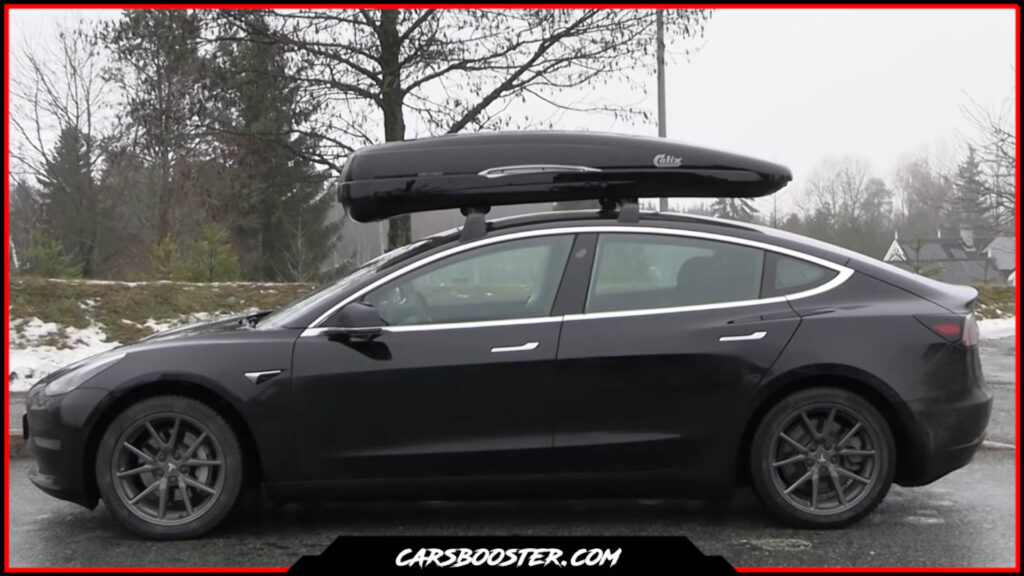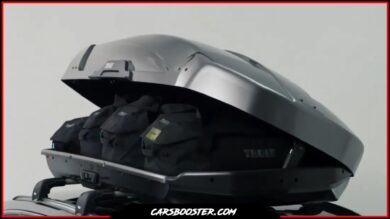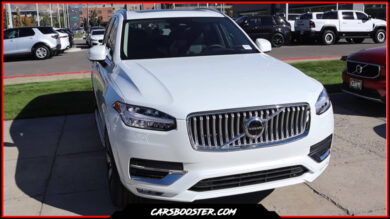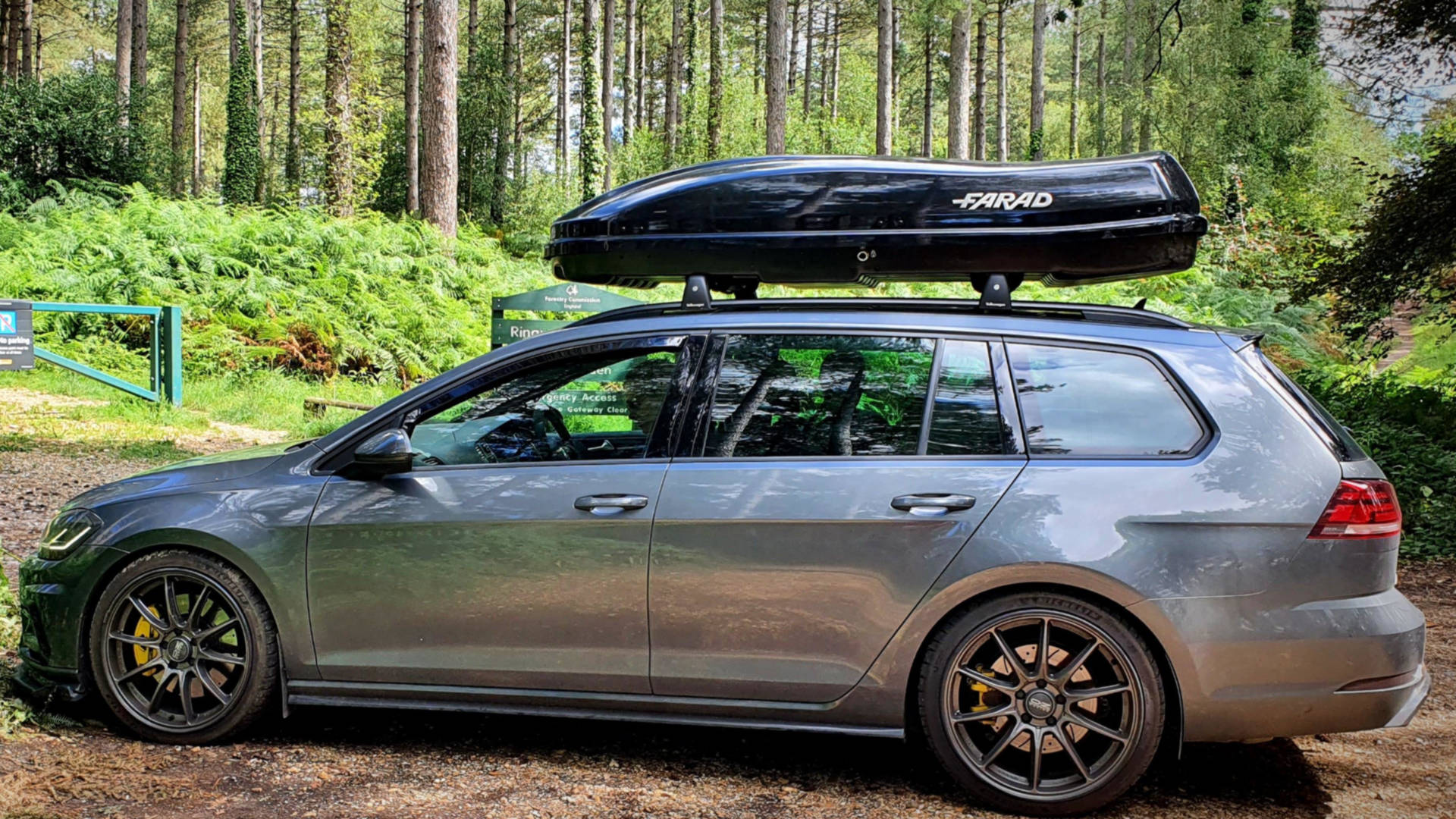
Roof boxes are widely used among campers and travelers due to their many features and benefits, but what if a roof box can cause damage to the car’s roof?
In this Article, we answer the question of whether a roof box can cause damage to your car’s roof, and if that’s so how you can prevent it from happening.
In short, roof boxes can cause damage if a set of criteria weren’t met, stay tuned to figure out why your roof box is causing damage to your roof and how to prevent it.
How Can A Roof Box Damage Your Car’s Roof? And How To Prevent It
A roof box can damage a car’s roof in several ways:
Incorrect Installation
incorrectly installing a roof box can be a major contributor to causing damage to your vehicle’s roof. Improper installation can result in a multitude of issues, including stress, detachment, and leaks. Neglecting to utilize the proper mounting hardware or securing the roof box clamps inadequately are common missteps that can lead to damage.
To prevent these problems from arising, it’s essential to probably follow the manufacturer’s instructions when installing your roof box. This entails verifying the compatibility of the roof box with your vehicle, selecting the proper mounting hardware, and making sure to tighten the clamps to the proper level for a secure fit, ensuring the roof box is centered as well.
Checking the tightness of the clamps on a regular basis is equally important in avoiding detachment or slipping of the roof box, which could result in substantial damage to the car’s roof. Incorrect installation can also place extra stress on the roof, potentially causing long-term harm or even a potential roof collapse.
Poor Quality Roof Box Materials
Poor-quality materials being used in a roof box can also cause damage to your car’s roof. Being exposed to various weather conditions and driving conditions, it’s crucial to choose a roof box constructed with rugged, reliable materials able to endure such conditions.
A roof box crafted from poor quality materials, such as flimsy plastic, can easily break or crack under stress and lead to detachment or even falling off of the car. This not only damages the car’s roof but also constitutes a hazard to other drivers.
Moreover, low-quality roof boxes might not have a tight and water-resistant seal, leading to leaks and potential water damage to the items stored inside.
Hence, it is advisable to opt for a premium quality roof box made from materials such as fiberglass or high-density polyethylene, that provide robustness, low weight, and resistance to cracking or damage, ensuring your roof box stays safe and secure during use.
Overloading The Roof Box
Exceeding the weight limit of your roof box or unevenly distributing the weight can result in damage to your car’s roof. The combined weight of the roof box and its contents can put stress on the roof, potentially causing it to warp or bend, leading to permanent damage or even a potential roof collapse.
It’s essential to pick a roof box that has an appropriate weight capacity suitable for your car, and to be mindful of the weight of the items stored inside.
Going over the weight limit of the roof box can lead to it slipping or detaching, which can cause harm to the roof of your car or other parts.
Furthermore, an imbalanced weight distribution in the roof box can also lead to damage. Making sure that the weight inside the roof box is evenly distributed will minimize the stress on the roof.
To prevent overloading your roof box, be sure to follow the manufacturer’s weight capacity guidelines, and keep an eye on the weight of the items stored inside. By doing this, you can reduce the risk of damage to your car’s roof and maintain the safety and longevity of your roof box.
Leaving Your Roof Box Mounted All The Time
Leaving a roof box permanently attached to your car can pose a risk to the integrity of both the roof box and the roof of your vehicle. The constant exposure to the harsh elements of nature like wind, sun, and rain can lead to the degradation and deterioration of the roof box and its mounting hardware, causing leaks or even detachment.
Moreover, the weight of an empty roof box can put constant excessive stress on your car’s roof, causing it to bend or warp, leading to significant damage or even the possibility of a roof collapse.
Therefore, it is imperative to remove the roof box when not in use and store it in a secure and dry place. This action will minimize the exposure of the roof box and its mounting hardware to the elements, reducing the risk of damage to both the roof box and the roof of your car.
Drive Slower
While transporting a roof box on your car, you should practice driving with greater caution as compared to your typical driving style.
This is to minimize the strain and impact on the roof of your car that could be caused by excessive speed, particularly when driving on highways or rugged roads. High speeds have a tendency to make the roof box shift or shake, which could result in further damage to your car’s roof.
Therefore, it is highly recommended to reduce your driving speed while using a roof box. This will not only help preserve the roof of your car, but it will also enhance the stability of the roof box, lowering the chances of it vibrating or moving during transit. It’s worth mentioning that driving slower can result in better fuel efficiency and lower wind noise.
Moreover, sudden braking or quick acceleration should also be avoided while using a roof box as they may trigger the roof box to shift or shake, placing added stress on your car’s roof.
Conclusion: Can A Roof Box Damage My Car?
In the final analysis, having a roof box for your car can be a phenomenal way to escalate its storage capacity and make transporting bulky items a breeze.
However, it is paramount to utilize it appropriately and take necessary precautions to prevent harm to your vehicle’s roof. Mishandling such as incorrect installation, bad roof box materials, overloading the box, leaving it mounted permanently, and driving at high speeds can all cause damage to your car’s roof.
To avoid these scenarios, it’s vital to opt for a roof box of premium quality, constructed from resilient materials, install it following the manufacturer’s guidelines, limit the weight of stored items, remove it when not in use and store it in a secure and dry place, drive with a more cautious approach, and stay clear of sudden braking or acceleration.
By adhering to these principles, you can relish the benefits of a roof box while reducing the chance of damaging your car’s roof.
With the correct care and usage, a roof box can be a valuable asset to your car, making it more convenient to transport larger items and boosting your storage space.
A note worth mentioning is that most vehicles nowadays come with a panoramic sunroof, so make sure to be extra careful while installing, using, and loading your roof box, in addition, we advise trying NOT to open your sunroof while a roof box is installed on top of your vehicle to avoid any damage to your roof or sunroof.



